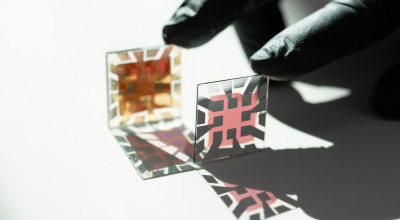
The Georgia Institute of Technology (Georgia Tech) and the Pacific Northwest National Laboratory (PNNL) have announced a new collaboration focused on critical infrastructure cybersecurity innovation through the launch of a joint institute, the Institute for Cybersecurity and Resilient Infrastructure Studies (ICARIS). The goal of the institute is to serve as a leading national resource that delivers the technologies, test beds, and talent necessary to secure the nation’s critical infrastructure.
ICARIS is motivated by the fact that, while the scope of the cyber threat against critical infrastructure is understood, capabilities to address the threat are spread across numerous organizations, involving academic, government, and industry stakeholders. Moreover, there is a critical shortage of skilled personnel with an understanding of both cybersecurity and the underlying physical systems.

"Georgia Tech is proud to partner with PNNL to accelerate vital infrastructure research that will benefit people nationwide," said Chaouki Abdallah, executive vice president for Research at Georgia Tech. "This collaboration leverages Georgia Tech’s and PNNL’s complementary strengths, catalyzes new and exciting research directions, and will serve as a national resource for all infrastructure sectors."
According to David Manz, PNNL’s co-director for the institute, and Georgia Tech Research Institute’s (GTRI) Alexa Harter, the primary goals of ICARIS are to: (1) perform translational R&D that moves innovative concepts towards implementation into operational environments; (2) develop the future workforce; and (3) provide advice and solutions to communities, states, federal agencies, and businesses. The institute will guide technology development roadmaps for critical infrastructure sectors while influencing a whole-of-government approach to cybersecurity for these sectors, directly supporting national strategies such as the White House’s Industrial Control Systems Cybersecurity Initiative.
“This collaboration brings together the capabilities of PNNL and Georgia Tech to accelerate our combined contributions to the security of the critical infrastructure community,” said Deb Gracio, PNNL’s Associate Laboratory Director for National Security.
“The partnership will offer a distinctive value proposition founded on three areas of expertise that Georgia Tech and PNNL can uniquely combine: threat intelligence and assessments, deep technical understanding of cybersecurity and engineering domains, such as electric power systems, and an ability to translate threat-informed technologies and technical knowledge into operational impact,” according to GTRI Director James Hudgens.
The collaboration will cement the growing relationship between Georgia Tech and PNNL in cybersecurity and advanced computing, establishing the foundation for long-term research partnerships and major new programs.
"Ensuring the cybersecurity of the nation’s critical infrastructure is of paramount importance if we are to continue to prosper as the result of our investments in technology. This joint institute will leverage Georgia Tech’s 20-year-long commitment to cybersecurity to further develop innovative research directions and educational curricula aimed at improving the security and privacy of systems, such as the electric power grid, which are so essential to our everyday lives," added Michael Bailey, Chair of Georgia Tech's newly formed School of Cybersecurity and Privacy.
“This partnership is an important and exciting step forward in building multidisciplinary teams of researchers who are dedicated to protecting our nation’s energy infrastructure so our future energy systems are resilient, reliable, and secure,” said Jud Virden, PNNL’s Associate Laboratory Director for Energy and Environment.
The joint institute will build on PNNL’s strengths in advanced computing and data science for security, grid controls and cyber defenses, and vulnerability assessment for critical infrastructure. The institute will also provide a pathway to apply PNNL’s significant capabilities in resilient controls for the power grid, critical infrastructure test ranges, and AI methods to automate defensive maneuvering and threat discovery.
“This partnership falls directly out of the Georgia Tech Research Next Strategic Plan, which recognizes that we must increasingly partner with a broader spectrum of stakeholders to truly deliver the positive impact we have committed to on our planet’s toughest problems,” said SEI Executive Director and Research Next co-chair Tim Lieuwen. “We are committed to putting in the work to be a great partner.”
Georgia Tech has initiated a national search for the joint institute co-director. Application information can be found here. Lee Lerner, a GTRI principal research engineer, has been named interim co-director.
GTRI Communications
Georgia Tech Research Institute
Atlanta, Georgia USA

About GTRI: The Georgia Tech Research Institute (GTRI) is the nonprofit, applied research division of the Georgia Institute of Technology (Georgia Tech). Founded in 1934 as the Engineering Experiment Station, GTRI has grown to more than 2,800 employees, supporting eight laboratories in over 20 locations around the country and performing more than $700 million of problem-solving research annually for government and industry. GTRI's renowned researchers combine science, engineering, economics, policy, and technical expertise to solve complex problems for the U.S. federal government, the state, and industry. For more information, please visit www.gtri.gatech.edu.



